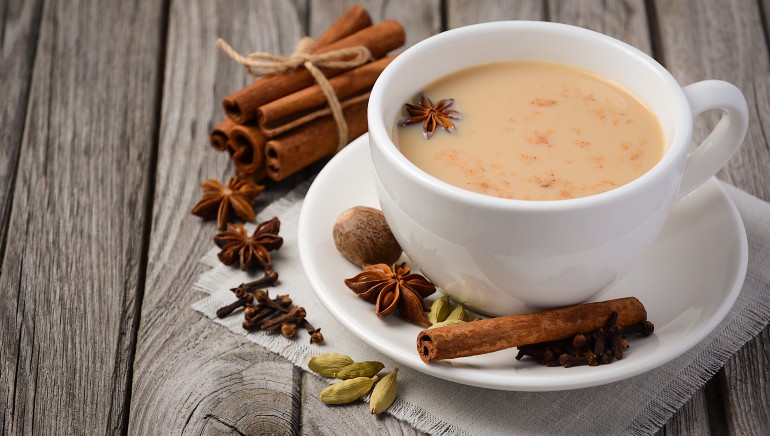
5 side effects of milk tea you must know
5 months ago | 5 Views
Who doesn't enjoy a cup of pleasant milk tea in the morning? Its comforting warmth, creamy texture, and sweet, milky flavour have made it an international hit. But there is a darker truth hiding beneath its relaxing surface. While moderate pleasure may be fine, drinking this beverage can result in many unknown side effects. Weight gain and digestion difficulties, as well as anxiety and sleep disturbances, can all have serious repercussions. So, the next time you reach for that tempting cup, think of the hidden costs beyond the pleasure. Know the surprising side effects of milk tea and how to enjoy this popular drink properly.
What is milk tea?
Milk tea, a popular beverage enjoyed around the world, is a comfortable combination of tea and milk. “This adaptable drink can be made in various ways, from a simple cup of black tea with a splash of milk to more elaborate combinations with flavours, sweeteners, and toppings,” says dietician Gauri Anand. The mix of tea and milk produces a smooth, creamy texture with a distinct flavour profile that many people enjoy. Plus, it is a delicious and fulfilling beverage that can be consumed hot or cold. However, there are numerous side effects of milk tea that one should be aware of.

Side effects of milk tea
Here are some of the common side effects of milk tea that you must not ignore:
1. Disrupts sleep cycle
One of the common side effects of milk tea is that it disrupts the sleep pattern due to its caffeine content. Caffeine, a stimulant, can disrupt the body's normal sleep-wake cycle. Consuming milk tea close to bedtime can make it difficult to fall asleep since the caffeine keeps the mind awake and active, as found in a study published in the journal Advances Nutrition. Additionally, it can cause fragmented sleep, which is characterised by waking up throughout the night. This can lead to daytime weariness, reduced cognitive function, and poor overall sleep quality. To reduce sleep problems, limit your milk tea consumption, especially in the evening.
2. Leads to weight gain
Another side effect of milk tea is that it causes weight gain when drank in excess with additional sugars and fats. The high sugar content of many milk tea varieties provides an immediate energy boost, but it can also cause blood sugar rise and energy breakdown, as found in a study published in the journal Food Science and Nutrition. This might cause a desire for more sweet meals, resulting in a vicious cycle of overeating. Plus, the creamy texture of the beverage, which is commonly obtained by adding milk and cream, contributes to its calorie and fat content. Regular intake of high-calorie beverages can result in weight gain over time, especially if not balanced with a healthy diet and regular exercise.

3. Digestion problems
Caffeine can cause stomach difficulties, particularly constipation, as found in a study published by BMC Public Health. Caffeine works as a diuretic, increasing urine output and potentially causing dehydration which may hinder digestion and cause fewer frequent bowel motions. Plus, the dairy ingredients in milk tea, such as milk and cream, might cause digestive pain in people with lactose intolerance or sensitive digestive systems. Lactose intolerance may lead to bloating, gas, and diarrhoea, whereas dairy sensitivity can produce many gastrointestinal symptoms. To avoid stomach problems, sip milk tea in moderation and stay hydrated by drinking lots of water throughout the day.
4. Anxiety
Another side effect of milk tea is anxiety due. Excess caffeine consumption can cause a series of physiological responses, including increased heart rate, higher blood pressure, and enhanced alertness, as found in a study published in the journal Frontiers Psychology. These bodily sensations might resemble anxiety symptoms, causing feelings of nervousness, restlessness, and irritation. People who have pre-existing anxiety disorders may be more vulnerable to caffeine-induced anxiety. To reduce anxiety, limit your coffee intake, especially during times of high stress or worry.
5. Nutritional deficiencies
Overconsuming milk tea can "reduce the consumption of water and other drinks that contribute to overall hydration and nutrient intake,” says the Anand. Additionally, the high sugar content in many milk tea varieties can lead to sugar cravings and a decreased appetite for balanced meals. Over time, this can result in deficiencies in essential vitamins, minerals, and other nutrients necessary for optimal health. To maintain a well-balanced diet, be aware of the side effects of milk tea and prioritise nutrient-dense foods such as fruits, vegetables, whole grains, and lean protein.
How to make milk tea healthy?
To minimise these potential side effects of milk tea, try the following:
- Opt for high-quality black, green, or oolong tea. These teas are rich in antioxidants and have numerous health benefits.
- Choose low-fat or skim milk to reduce calorie and fat intake. You can also opt for plant-based milk alternatives like almond milk, soy milk, or oat milk.
- Instead of sugar, use natural sweeteners like honey, maple syrup, or stevia.
- These are lower in calories and have a lower glycemic index.
Note: Enjoy your milk tea in reasonable quantities. Overindulging can lead to unwanted side effects. By following these tips, you can enjoy your favourite beverage without compromising your health.
Takeaway
Milk tea provides numerous health benefits, such as boosting immunity and providing energy. However, there are many side effects of milk tea that must be kept in mind if you are a regular drinker. It should be consumed in moderation due to its high caffeine content, and people with allergies or specific health conditions should consult a healthcare provider before drinking it regularly.





















